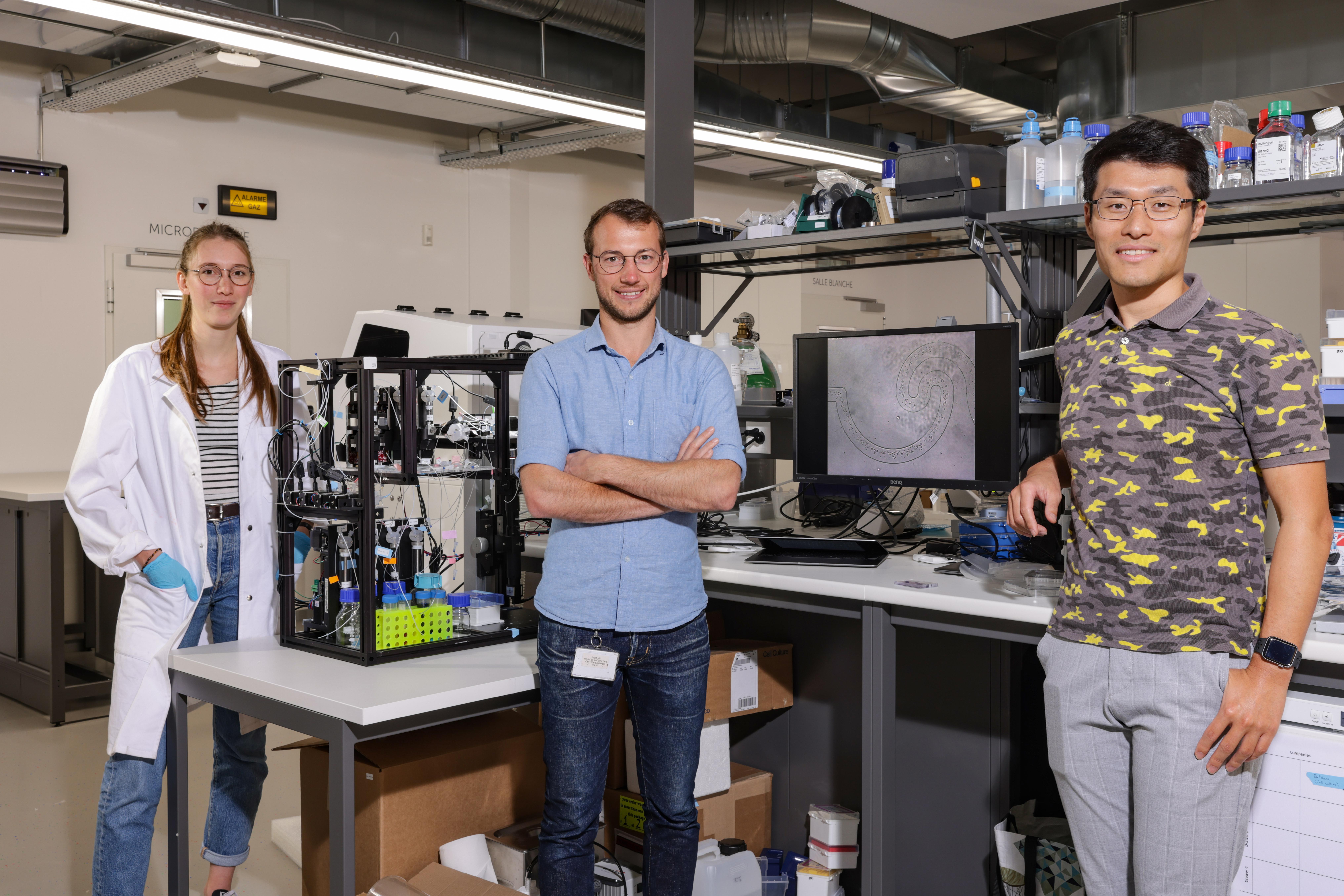Rapid early detection of drug resistance in cancer patients
Drug resistance is a major problem in the treatment of cancer. Some cancer cells demonstrate resistance right at the start of a new therapy, while others develop it over the course of several months or years. This throws up serious challenges for oncologists who want to administer the most effective treatment possible while avoiding harmful side effects. That’s where Parithera’s system comes in. It isolates the cancer cells contained in a blood sample one by one – even if there are only a handful of such cells to be found – and analyzes their messenger RNA with unparalleled speed and precision. The company has just launched its first clinical trials with a hospital to develop the machine using patients samples.
Cancer cells can become resistant to a drug for two main reasons: either the biomarker targeted by the drug is altered due to a mutation in the cells’ DNA, or new signaling pathways emerge that bypass the drug’s effects. “Resistance to treatment is the cause of death in 90% of cases. Unfortunately, there is no diagnostic method for accurate detection” says Antoine Herzog, the CEO of Parithera. “For instance, biopsies require invasive surgery which preclude their use longitudinally, while analyzing circulating tumor’ DNA provides only limited information.” However, the method used by Parithera gives doctors detailed data and lets them directly observe changes in the gene expression of cancer cells – and this gene expression is what’s used to better target therapies.
Automated sequencing one cell at a time
Parithera’s system employs patented technology developed at EPFL and ETH Zurich that isolates individual cancer cells and sequences their mRNA. “It’s important to proceed cell by cell because cancer is highly complex, and all the cells in a given sample won’t be the same,” says Herzog. “Each cell you analyze will give you different information.” What’s more, spotting the target cancer cells – known as circulating tumor cells (CTCs) – in a blood sample is much like searching for a needle in a haystack. Herzog explains: “A 1 mL blood sample will contain only 1–100 CTCs on average, compared to millions of white blood cells and billions of red blood cells.” To pinpoint the CTCs with nearly 100% accuracy, Parithera’s device uses a micro- and nano-fluidic system along with magnetic nanoparticles that attach to the CTCs and manipulate them in a microfluidic system which tag them with a molecular bar code. “In the technology currently used in oncology, the nanoparticles get ‘eaten’ by the patients’ white blood cells, which reduces sample purity. Our designer system overcomes this problem, making our approach realistic from the point of view of costs to the healthcare system". Ultimately, this analysis could also be used to ensure that no more cancer cells are present in a patient.” says Herzog. The entire process is automated and adapted to the clinical context.

Salomé Thüler, Xiaokang Li and Antoine Herzog © 2023 Alain Herzog
The firm worked with a professional designer in 2021 to lay out its device, through a program run by EPFL’s Vice Presidency for Innovation. The hope is that Parithera’s system will become one of the standard tests run by oncologists. The company is aiming for a market launch in four to five years, but clinical trials still need to be completed to determine what kinds of cancers, and at what stages, the device is best suited for. “The data we’ve collected so far make us highly optimistic about our system’s potential,” says Herzog. “CTCs are present in most types of cancer, and there are correlations between the stage of the cancer and the number of cells found”. Also, to make the system interface as easy to use as possible for healthcare professionals, we work closely with our partners at the hospital and are in contact with major diagnostics companies.
Parithera, which currently has four employees, has received startup funding from Innosuisse and Venture Kick. “In light of today’s economic climate, our advisors suggested we wait a while before launching a major funding round,” says Herzog. “So for now we’ll continue our development work and focus on the clinical trials under way. They also plan to take part in EPFL’s Investor Day on 8 November to start getting their name out to potential investors.
